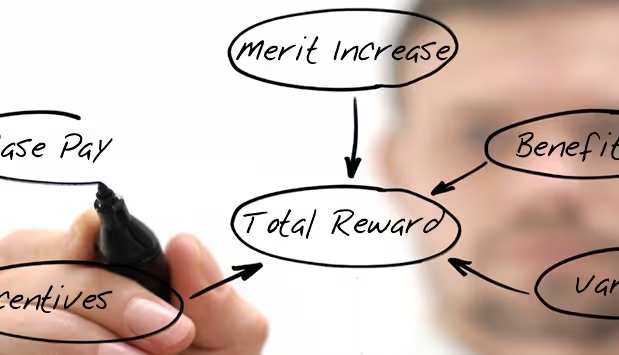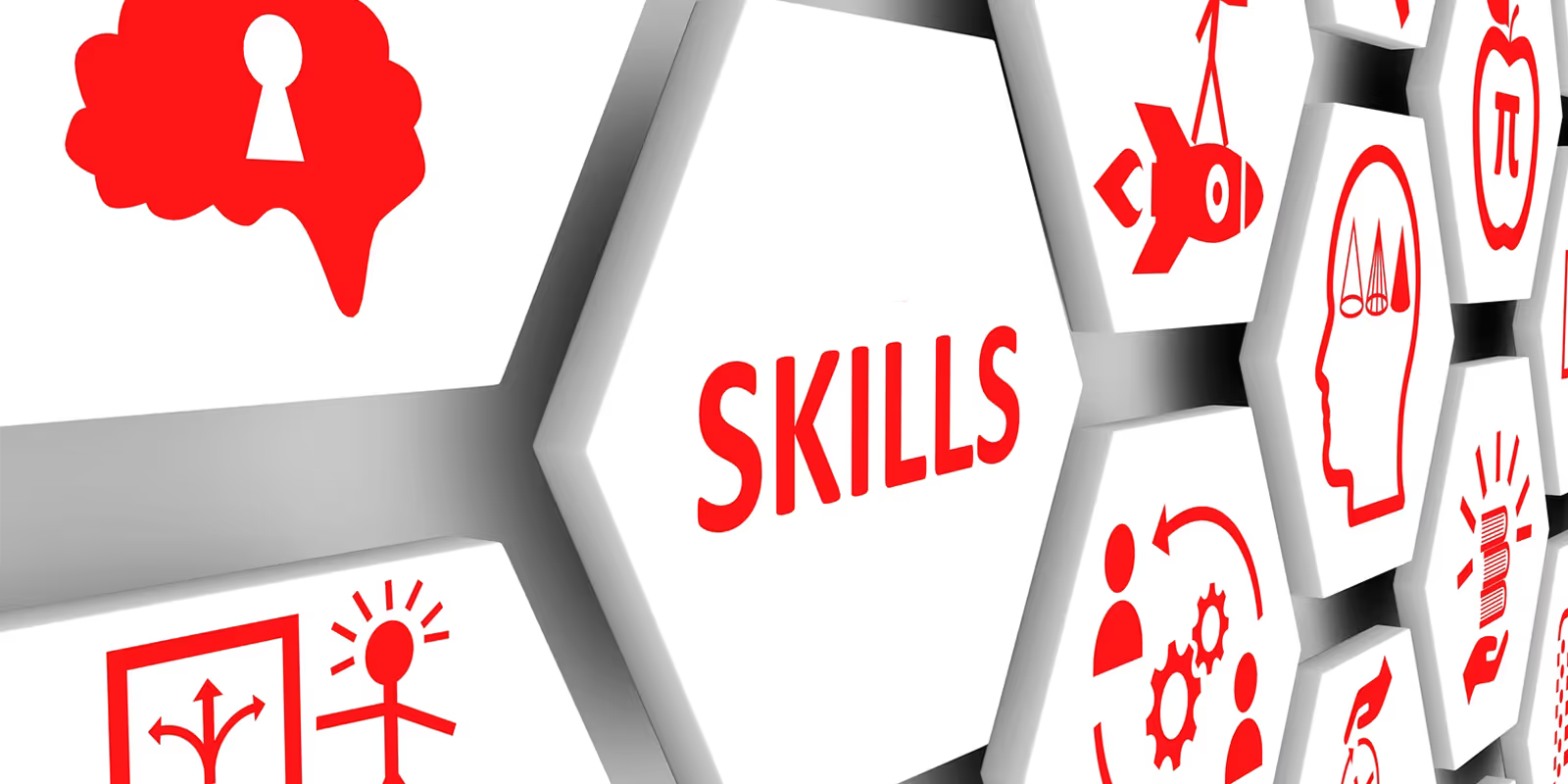Skills of a Well-Rounded Rewards Professional

A well-rounded rewards professional possesses a comprehensive understanding of compensation and benefits practices and strategies and a deep knowledge of the business and industry in which they operate. They are experienced in designing, implementing, and managing remuneration programs that align with organizational goals and objectives while ensuring compliance with legal and regulatory requirements.
In addition, a well-rounded rewards professional should have excellent analytical and problem-solving skills and the ability to communicate complex compensation and benefits concepts to technical and non-technical audiences. They should also possess a strong customer service orientation, as they will often be working directly with employees to address questions and concerns about their wages and Fringe benefits.
A good rewards professional is a strategic partner who understands the complexities of salary and incentives and can design and implement programs that attract, retain, and motivate employees while supporting business objectives.
Technical skills for a Rewards professional
Technical skills are essential for a rewards professional. They are responsible for designing, implementing, and managing remuneration and perks programs that align with business objectives while ensuring compliance with legal and regulatory requirements. Some of the critical technical skills required for a rewards professional include:

- Compensation design and analysis: A strong understanding of compensation design principles, such as job evaluation, market pricing, pay structures, and incentive plans. The ability to conduct job analysis and market surveys to ensure that compensation programs are competitive and equitable.
- Benefits administration: Knowledge of benefit plan design, administration, and compliance, including health and welfare benefits, retirement plans, and executive compensation. Familiarity with benefit plan providers and vendors and the ability to evaluate their offerings and services.
- Data analysis and modeling: The ability to analyze data using statistical methods and tools to provide insights into trends, issues, and opportunities for improvement. The ability to build models and scenarios to support decision-making.
- Legal and regulatory compliance: Knowledge of federal and state laws and regulations that impact wages and Fringe benefits, such as ERISA, COBRA, FLSA, and HIPAA. The ability to ensure that compensation and benefits programs comply with these regulations.
- Communication and presentation: The ability to communicate complex compensation concepts effectively to technical and non-technical audiences, both verbally and in writing. The ability to present data, analysis, and recommendations to senior management and other stakeholders.
- Technology proficiency: Familiarity with HR systems and technologies used to manage compensation and benefits, such as HRIS, payroll systems, and benefits administration platforms. The ability to leverage technology to improve efficiency and effectiveness in administration.
Overall, technical skills are critical for rewards professionals to design, implement, and manage adequate compensation programs that support business objectives and comply with legal and regulatory requirements.
Analytical skills for a Rewards professional
Analytical skills are essential for a rewards professional. They are responsible for designing and managing salary and incentive programs that align with business objectives and provide value to employees while remaining cost-effective. Some of the critical analytical skills required for a rewards professional include:

- Cost-benefit analysis: The ability to perform a cost-benefit analysis of different wage types and other fringe benefits programs to determine their value to the organization and their impact on employee retention, engagement, and performance.
- Financial analysis: The ability to analyze the financial impact of remuneration and perks programs on the organization, including their impact on profitability, revenue, and cash flow. This includes using financial statements and ratios to assess the organization's financial health.
- Problem-solving: The ability to identify and solve complex problems related to compensation, including developing and evaluating alternative solutions to a given problem.
- Attention to detail: The ability to pay attention to detail when analyzing emoluments and allowance data, as even minor errors or omissions can significantly impact the analysis's accuracy.
- Critical thinking: The ability to think critically and objectively when analyzing data and making decisions. This includes identifying and evaluating the assumptions, biases, and limitations.
Communication skills for a Rewards professional
Communication skills are essential for a rewards professional as they communicate complex compensation and benefits information to various stakeholders, including employees, managers, senior executives, and external vendors. Effective communication is crucial for ensuring that programs are understood and appreciated by employees and that they align with business objectives.
Some of the critical communication skills required for a rewards professional include:
- Clarity: The ability to communicate allowance information clearly and concisely, using plain language and avoiding technical jargon.
- Active listening: The ability to actively listen to employees and other stakeholders to understand their needs and concerns regarding compensation and benefits.
- Empathy: The ability to understand and empathize with employees and other stakeholders with different perspectives and needs regarding remuneration and perks.
- Persuasion: The ability to persuade employees and other stakeholders to support and participate in programs.
- Cultural sensitivity: The ability to communicate effectively across different cultures and languages, considering the nuances and differences in communication styles and preferences.
- Presentation skills: The ability to effectively present compensation information to various audiences, using visual aids and other presentation techniques to enhance understanding.
- Conflict resolution: The ability to resolve conflicts and manage difficult conversations related to compensation, including remaining calm and professional in challenging situations.
Ultimately practical communication skills are critical for rewards professionals that align with business objectives and are appreciated by employees and other stakeholders. Effective communication also helps build employee trust and engagement, leading to better retention and performance.
Interpersonal skills for a Rewards Professional
Interpersonal skills are essential for a rewards professional, as they are responsible for developing and maintaining relationships with various stakeholders, including employees, managers, senior executives, and external vendors. Interpersonal skills are crucial for building trust, influencing stakeholders, and collaborating effectively.
Some of the critical interpersonal skills required for a rewards professional include:
- Relationship building: The ability to build and maintain positive relationships with stakeholders, including employees, managers, senior executives, and external vendors.
- Collaboration: The ability to collaborate effectively with others, including cross-functional teams, to design and implement compensation and benefits programs that align with business objectives.
- Influence: The ability to influence stakeholders and advocate for salary and incentives programs that provide value to the organization and its employees.
- Emotional intelligence: The ability to understand and manage one's own emotions and the emotions of others to build positive relationships and resolve conflicts.
- Conflict resolution: The ability to resolve conflicts and manage difficult conversations related to compensation constructively and professionally.
- Cultural sensitivity: Understanding and respecting different cultures, values, and perspectives when working with stakeholders from diverse backgrounds.
- Coaching and mentoring: The ability to coach and mentor employees and other stakeholders on wages and Fringe benefits programs and how they align with the organization's goals and objectives.
Interpersonal skills are critical for rewarding professionals to build positive relationships with stakeholders, influence others, and collaborate effectively to design and implement programs that align with business objectives and meet the needs of employees.
Many rewards professionals find that life coaching helps them strengthen these relationship-building abilities and develop better emotional awareness when working with diverse stakeholders
Interpersonal skills also help to foster a positive work culture and promote employee engagement and retention.
Strategic thinking skills for a Rewards professional
Strategic thinking skills are critical for rewards professionals to design and manage compensation and benefits programs that align with the organization's goals and objectives. These skills involve developing a vision for the programs, understanding the organization's business model and competitive landscape, identifying and solving complex problems, analyzing data, and managing risks.
By applying strategic thinking skills, rewards professionals can ensure that their emoluments and allowance programs support the organization's growth and success while meeting the needs of employees. Strategic thinking skills help professionals design and implement programs that provide value to the organization and its employees over the long term.
Adaptability and flexibility as a Rewards professional
Adaptability and flexibility are essential qualities for a rewards professional. The compensation and benefits landscape is constantly evolving, and the needs and preferences of employees and other stakeholders may change over time. Some of the key ways in which adaptability and flexibility are essential for a rewards professional include:

- Responding to changing needs: Rewards professionals must be able to adapt to changing needs and preferences of employees and other stakeholders, as well as changing business conditions, to ensure that wages and Fringe benefits programs remain relevant and practical.
- Embracing new technologies: Rewards professionals must be able to embrace new technologies and tools for designing and managing compensation and benefits programs, such as HRIS and data analytics software.
- Navigating regulatory changes: Rewards professionals must be able to navigate regulations related to wages and Fringe benefits, including changes in tax laws, healthcare policies, and labor laws.
- Openness to feedback: Rewards professionals must be open to feedback and willing to adjust allowance programs based on employee and stakeholder feedback.
Overall, adaptability and flexibility are essential qualities for a rewards professional. They enable the professional to respond to changing needs, embrace new technologies, navigate regulatory changes, and remain responsive to the employee and stakeholder feedback.
Leadership skills for a Rewards professional
Leadership skills are essential for a rewards professional to effectively manage salary and incentive programs and collaborate with stakeholders to achieve organizational objectives. Some of the critical leadership skills required for a rewards professional include:
- Strategic thinking: The ability to think strategically and develop remuneration and perks programs that align with the organization's goals and objectives.
- Decision-making: The ability to make informed decisions about remuneration and perks programs, considering various factors such as business objectives, employee needs, and industry trends.
- Team management: The ability to lead and manage a team responsible for designing and implementing compensation and benefits programs, including setting goals, providing feedback, and fostering a positive work environment.
- Change management: The ability to manage change related to wages and Fringe benefits programs, including communicating changes to stakeholders, addressing concerns, and supporting employees through the transition.
- Innovation: The ability to identify and implement innovative solutions for remuneration and perks programs that provide value to the organization and its employees.
- Coaching and mentoring: The ability to coach and mentor employees and other stakeholders on emoluments and allowances programs and how they align with the organization's goals and objectives.
Leadership skills are critical for a rewards professional to effectively manage salary and incentives programs and collaborate with stakeholders to achieve organizational objectives.
These skills allow rewards professionals to effectively manage emoluments and allowances programs and contribute to the organization's success.
Industry-specific knowledge for a Rewards professional
Industry-specific knowledge is essential for rewards professionals, as it enables them to design and manage compensation and benefits programs that are relevant and effective for their particular industry. Some of the critical areas of industry-specific knowledge that a rewards professional may need to possess include:
- Compensation practices: Knowledge of industry-specific compensation practices, such as prevailing wage rates, bonus structures, and equity awards.
- Regulatory environment: Understanding the regulatory environment for wages and Fringe benefits in their particular industry, including compliance with relevant labor laws, tax regulations, and benefit mandates.
- Competitive landscape: Awareness of the competitive landscape in their industry, including salary and benefit trends, to ensure that their compensation and benefits programs are competitive and attractive to top talent.
- Business models: Understanding of the business models used by companies in their industry, including revenue streams, cost structures, and profitability drivers, to design wages and Fringe benefits programs that align with business objectives.
- Workforce demographics: Understanding the workforce demographics in their industry, such as age, gender, and skill sets, to design wages and Fringe benefits programs that meet the needs of a diverse workforce.
Overall, industry-specific knowledge is essential for rewarding professionals to effectively design and manage salary and incentives programs that meet their particular industry's unique needs and challenges.
By understanding industry-specific compensation practices, regulatory environments, competitive landscapes, business models, and workforce demographics, rewards professionals can design and implement programs that provide value to the organization and its employees.
How to Develop and hone your professional skills
Developing and honing your rewards and professional skills involves a combination of ongoing learning, practice, and feedback. Here are some steps that you can take to develop and hone your skills as a rewards professional:
- Pursue relevant education and certifications: Consider pursuing relevant education and certifications to expand your knowledge and skills in compensation design, benefits administration, and regulatory compliance. This may include obtaining certifications from professional organizations such as WorldatWork or the Society for Human Resource Management (SHRM).
- Stay up-to-date on industry trends: Stay informed about industry trends and best practices related to compensation and benefits by attending conferences, reading industry publications, and participating in professional networks.
- Seek feedback from stakeholders: Seek feedback from stakeholders, including employees, managers, and senior executives, on the effectiveness of remuneration and perks programs and areas for improvement.
- Develop your analytical skills: To effectively analyze data related to remuneration and perks programs and make informed decisions about program design and administration.
- Develop your leadership skills: Develop your leadership skills, including strategic thinking, decision-making, team management, and change management, to effectively lead emoluments and allowances programs and collaborate with stakeholders.
- Embrace new technologies: Embrace new technologies and tools for designing and managing wages and Fringe benefits programs, such as HRIS and data analytics software, to stay current with industry trends and best practices.
By following these steps, you can develop and hone your skills as rewards professional and effectively manage salary and incentives programs to meet the organization's and its employees' needs.
Conclusion
Being a well-rounded rewards professional is critical for success in today's complex and dynamic business environment. Rewards professionals with a broad range of technical, analytical, communication, interpersonal, strategic thinking, leadership, and industry-specific skills can effectively design and manage remuneration and perks programs that meet their organization's and its employees' unique needs and challenges.
By possessing diverse skills, a rewards professional can collaborate effectively with stakeholders, influence decision-making, and drive positive business outcomes. A well-rounded rewards professional can ultimately attract, retain, and motivate top talent, contributing to the organization's success.
Find out how Compport can help you manage and promote Pay Equity, book a demo today!
%2520(6)%2520(2).avif)
Frequently Asked Questions
Q1. What are the technical skills required for a rewards professional?
Answer: Technical skills for a rewards professional include compensation design and analysis, benefits administration, data analysis and modeling, legal and regulatory compliance, communication and presentation skills, and technology proficiency.
Q2. What are the analytical skills needed for a rewards professional?
Answer: Analytical skills for a rewards professional include cost-benefit analysis, financial analysis, problem-solving, attention to detail, and critical thinking.
Q3. Why is adaptability and flexibility important for a rewards professional?
Answer: Adaptability and flexibility are crucial for a rewards professional to respond to changing needs, embrace new technologies, navigate regulatory changes, and remain responsive to feedback from employees and stakeholders.
Q4. What leadership skills are necessary for a rewards professional?
Answer: Leadership skills for a rewards professional include strategic thinking, decision-making, team management, change management, innovation, and coaching and mentoring.
Q5. Why is industry-specific knowledge important for a rewards professional?
Answer: Industry-specific knowledge allows rewards professionals to design and manage compensation and benefits programs that are relevant and effective for their particular industry, considering compensation practices, regulatory environment, competitive landscape, business models, and workforce demographics.


%20(49).png)
%20(48).png)
%20(47).avif)
